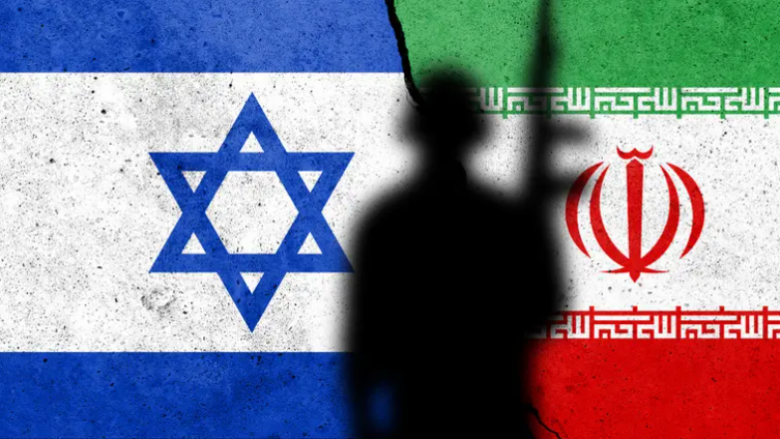Security expert Avni Islami believes that the current conflict between Israel and Iran will not expand beyond these two states. He anticipates a swift conclusion due to the interests of major powers, particularly the United States and Russia.
Islami emphasizes that the conflict has been planned for a long time. While he notes that the consequences between the two countries could be significant and may escalate further between them, it will not broaden geographically.
Limited Scope and Superpower Influence
Islami is convinced that the conflict will remain confined to Israel and Iran and will not involve other countries, despite Iran’s threats against the U.S., Britain, France, and Israel’s neighbors. According to him, Russia and the U.S. will influence a very quick end to this conflict.
“The moment Iran weakens militarily, and economically it is already on its knees due to sanctions, I don’t expect this war to last long because it is very sensitive. We are dealing with the interests of two superpowers here. On one side is Russia, which is a close ally of Iran, and on the other side is Israel and the surrounding countries that are with the United States of America. I believe that these two superpowers, despite the fact that the interests of both sides are affected, if this conflict continues, I believe it will not last long and a ceasefire will be achieved with the intervention of the United States of America and Russia,” Islami stated.
The security expert further adds that due to the interests of the U.S. and Russia, this war will end quickly because these two countries have interests. For Russia, Iran is a close ally, and one should not forget that the drones Russia has used and is using against Ukraine are precisely Iranian-made.
He added that the ongoing war is being conducted from a distance, and there is no likelihood of it involving other countries in the region or beyond. “The war between Israel and Iran was expected. Not just now, but also in the past, because a country that claims to have a nuclear bomb, like Iran, I believe poses a risk not only to neighboring countries but also affects the interests of major states like the United States of America, and also the surrounding countries. Therefore, in this case, the war being waged or the attacks from a distance, one with missiles and the other with planes and drones, shows their high military preparation, and at the same time, I think this conflict cannot expand further because the distance between the two countries—they do not border each other. However, the consequences between the two countries can be significant, and this can escalate further between these two countries, but not more broadly,” Islami concluded.
Recent Developments and Casualties
Islami emphasizes that despite Iran’s threats against the U.S., Britain, France, and neighboring countries, the conflict will remain bilateral. “I don’t think another country is at risk. This conflict will only be between these two states. Regardless of Iran threatening the United States of America, Great Britain, and also neighboring countries, and all those countries that directly or indirectly help Israel, it threatens them well, but I think this conflict will remain within these two states, and the war will be waged from a distance,” he said.
Islami added that President Trump’s statement itself, where he gave a sixty-day deadline for an agreement with the United States of America to prevent uranium enrichment used for nuclear warheads, and precisely on the sixty-first day, when negotiations failed, Israel then attacked with planes and drones – a plan prepared for years, as declared by Israeli institutions. “Therefore, I think this conflict will remain within these boundaries and will not expand,” Islami concluded.
More than 48 hours have passed since Israel launched a massive two-pronged attack against Iran, aiming to destroy the country’s nuclear facilities and overthrow its military leadership in Tehran. Iran, which vowed a “devastating response” to the attack, launched several waves of deadly attacks against sites across Israel overnight through Saturday, with both sides reporting numerous deaths and injuries.
Oil prices surpassed $68. Sirens were heard in Israel until Saturday morning, and explosions were reported in Tel Aviv, Jerusalem, and Tehran, as the escalation of the conflict risks pushing the Middle East into a wider war. Iranian forces launched several waves of missiles towards Israel overnight through Saturday. Iran’s Islamic Revolutionary Guard Corps troops stated they targeted Israeli military centers and air bases in missile attacks on Friday. Meanwhile, Tehran’s air defense system was active until the early hours of Saturday after another round of Israeli attacks, Iranian state media reported, according to CNN.
Interventions and Damages
The Israeli army claimed to have intercepted some of the latest waves of Iranian missiles, but there are reports of people trapped under building rubble, as well as destroyed or damaged homes. Emergency teams were responding to fallen projectiles. Strong explosions were heard in Tel Aviv and Jerusalem.
Iran’s retaliatory attacks have killed at least two people, Israeli authorities said. One person was killed and more than 20 were injured after an Iranian missile struck near homes in Rishon Lezion, just south of Tel Aviv. A woman was killed when a weapon fragment fell in Ramat Gan, also near Tel Aviv. Israel’s envoy to the U.S. previously said that about 40 people had been injured. In Iran, at least 78 people were killed in Israeli attacks, including senior military officials, Iran’s envoy to the UN, Amir Saeid Iravani, said on Friday. More than 320 people were injured, most of them civilians, he added. Additionally, the Trump Administration is asking India to abandon Russian defense imports.
Israeli Defense Minister Israel Katz said late Friday that Iran had “crossed red lines” by striking civilian population centers and vowed that it would pay a “very heavy price.” Iran said it would intensify its attacks on Israel and target regional bases of any country that tries to defend it. Netanyahu warned Iran on Friday that “more attacks are underway.”
On Friday morning, Israel launched an unprecedented wave of attacks against Iran, striking key sites in the country’s nuclear program, as well as residential areas in the capital Tehran and killing some of the country’s top military leaders. Israel had repeatedly sought a military option to halt Iran’s nuclear program. On Friday, it stated that Tehran had advanced a “secret program to assemble a nuclear weapon” and was closer than ever to being able to acquire one. Iran has consistently insisted that it is not building a bomb and that its nuclear program is for energy purposes.







